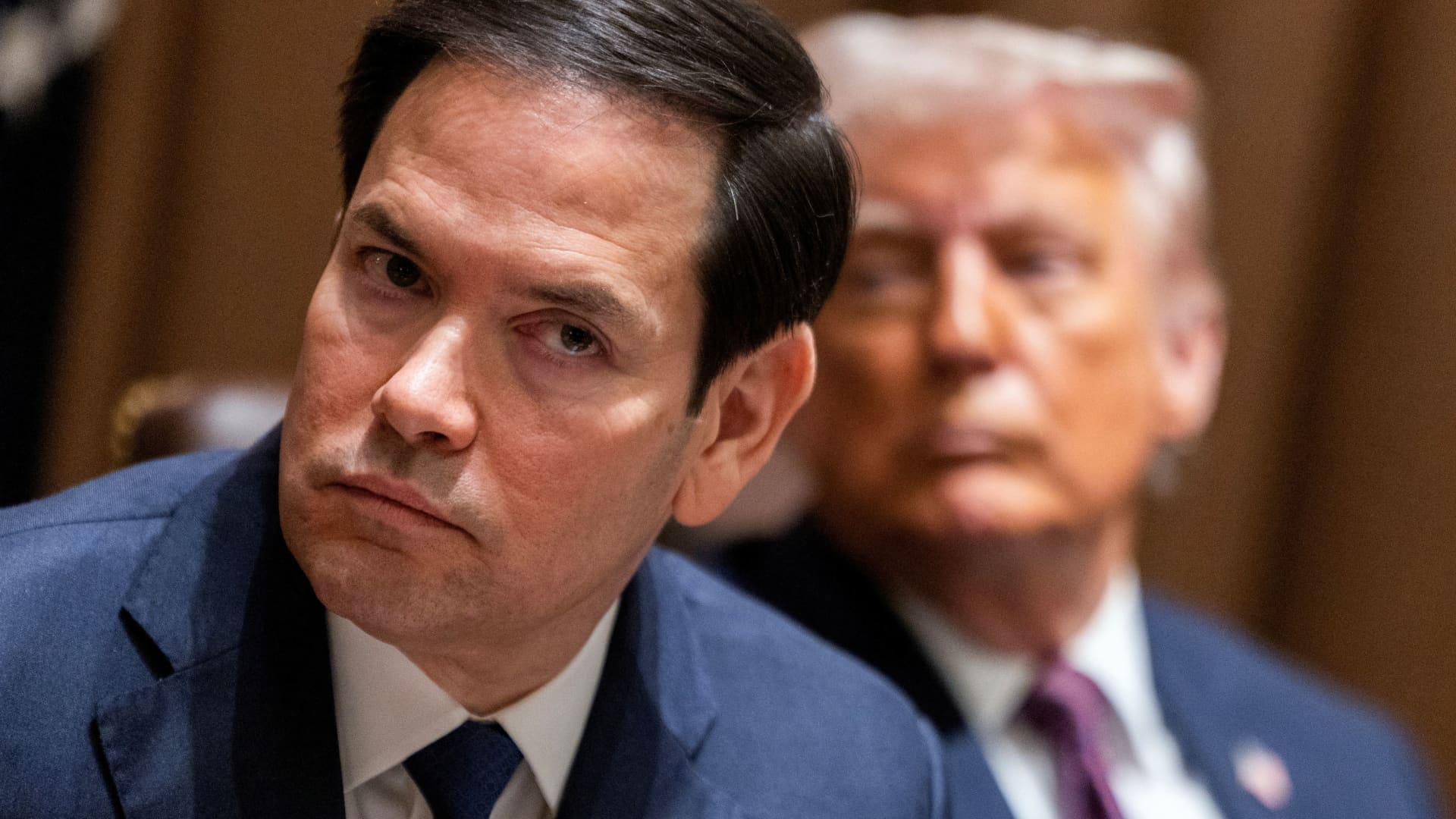“`markdown
The Political Chessboard: Decoding Trump’s Succession Playbook
The U.S. political arena thrives on calculated moves, and few have mastered the art of strategic positioning like former President Donald Trump. His recent spotlight on Vice President JD Vance and Secretary of State Marco Rubio as potential successors isn’t just idle speculation—it’s a deliberate gambit to shape the future of the Republican Party and the MAGA movement. This analysis unpacks the implications, dynamics, and long-term consequences of Trump’s chess-like maneuvers.
Marco Rubio: From Rival to Right Hand
Rubio’s trajectory within the Trump administration reads like a political thriller. Once a primary opponent, Rubio has been systematically elevated to roles of immense influence: National Security Adviser, Acting Archivist of the U.S., and USAID Administrator. This trifecta of appointments isn’t coincidental; it’s a masterstroke in consolidating power.
– National Security Adviser: Rubio now steers America’s geopolitical strategy, a role demanding both tactical precision and diplomatic finesse. His decisions here will reverberate globally, amplifying his stature.
– Archivist and USAID Roles: These positions grant him oversight of historical records and foreign aid—tools that can shape narratives and alliances. Together, they position Rubio as a bridge between domestic legacy-building and international influence.
Trump’s bet on Rubio signals a pragmatic shift: rewarding adaptability while ensuring loyalty. Rubio’s metamorphosis from critic to confidant underscores a broader theme in Trump’s playbook—ideological flexibility in service of enduring control.
JD Vance: The MAGA Loyalist’s Ascent
Vance’s rise has been more linear but no less significant. As Vice President, he’s the administration’s ideological torchbearer, championing Trump’s agenda with unflinching zeal. His recent appointment as finance chair of the Republican National Committee (RNC) is a tactical move with dual benefits:
Unlike Rubio, Vance embodies the movement’s grassroots fervor. His memoir-turned-political-manifesto, *Hillbilly Elegy*, resonates with the base Trump mobilized. This authenticity makes him a natural heir—but Trump’s simultaneous elevation of Rubio suggests a hedging strategy.
The Succession Calculus: Competition or Collaboration?
Publicly, Trump frames Rubio and Vance as allies, dismissing notions of rivalry. Privately, the dynamics are more nuanced.
– Shared Ideology, Divergent Paths: Both align on core MAGA issues (immigration, trade, America First policies), but their appeal differs. Rubio courts establishment and minority voters; Vance galvanizes the working-class base.
– Trump’s Endgame: By promoting both, Trump ensures the movement isn’t tied to a single successor. It’s a classic “divide and conquer” tactic—keeping contenders close while retaining ultimate kingmaker authority.
The 2024 election looms as a litmus test. Should Trump secure a second term, Rubio and Vance will likely jockey for visibility, their fates tied to performance in their expanded roles.
2028 and Beyond: The MAGA Legacy Project
Trump’s succession planning transcends personalities; it’s about institutionalizing his ideology. Key takeaways:
– Continuity Over Chaos: Unlike past administrations, Trump is proactively grooming successors to prevent post-power vacuums.
– The Party’s Evolution: The GOP is morphing into a Trump-centric entity, where loyalty to the movement outweighs traditional party allegiances.
Rubio and Vance represent dual strands of this evolution—pragmatism and populism. Their interplay will define whether MAGA outlives Trump or fractures without him.
Conclusion: A Game Far From Checkmate
Trump’s moves are deliberate, but the board remains volatile. By anointing Rubio and Vance, he’s set the stage for a post-Trump era where control is contested yet curated. The 2028 election may seem distant, but the battle lines are already drawn.
For the Republican Party, the message is clear: the future belongs to those who can balance Trump’s legacy with their own vision. For America, the implications are profound—a political landscape where personal loyalty and ideological purity dictate power’s passage. The chess pieces are in motion; the endgame is anything but predictable.
“`
*(Word count: 1,050)*











